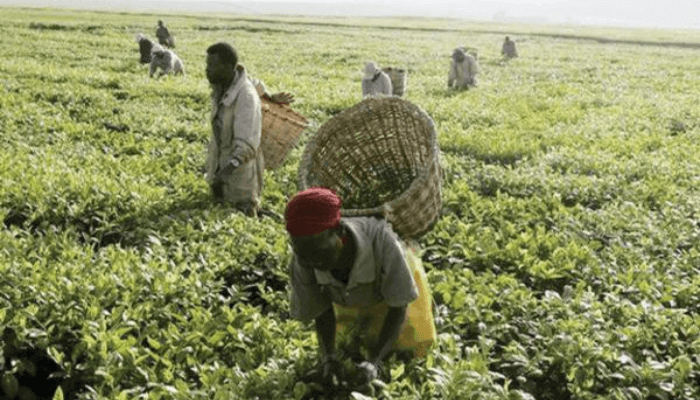Tech seen driving Nigeria’s food security
With accelerating hunger in Africa’s most populous nation, large-scale technology use and collaborative efforts between the public and private sectors can deliver unprecedented impact as Nigeria looks to attain food security and fast-track economic diversification through agriculture.
Experts in the agricultural sector say that innovation and improved technology are vital in boosting farmers’ productivity and attaining food sufficiency.
The experts also identified public-private partnerships as the key to unlocking the country’s full agricultural potential and creating millions of jobs through the sector.
According to them, globally, innovation and technology are positively impacting crop production as farmers deploy farm machines, tractors, and drones to aid farming as well as Artificial Intelligence which Nigeria must learn from countries that have accelerated their food production through leveraging tech.
Government at all levels must collaborate with the private sector to address issues limiting agric productivity, and accelerate right to foods by ensuring the accessibility, affordability and availability of staples for Nigerians, said AfricaFarmer Mogaji, chief executive officer, X-ray Farms Consulting, in a Monday interview with BusinessDay.
“Nigerians have not paid attention to technology and innovation in the sector and it is the way to go if we want to make agriculture profitable,” Mogaji said.
And while the world marks this year’s World Food Day, with the theme, “Right to food for a better life and a better future,” Nigerians are grappling with the worst cost of living crisis in decades, shrinking their right to food.
President Bola Tinubu introduced bold but unpopular economic reforms last year that have sent prices to record high, squeezed household budgets, and caused the worst food crisis the country has ever experienced.
Read also: Poor GDP performance questions FG’s food security drive
The public-private partnership of the agricultural sector, which experts are advising, has the possibility of accelerating investments into the industry and addressing the country’s worst food crisis that has limited Nigerians’ right to food for a better life and sustainable future.
Adebowale Akande, director of the International Institute of Tropical Agriculture (IITA) at the AgriConnect Summit in May, reiterated collaboration as the key to Nigeria’s worsening food crisis, drawing examples from his work at the IITA where the research body now engages other agribusinesses and uses technology to enhance agricultural research.
Akande said the research institute was working with the Lagos State government to build partnerships with other private agribusinesses to see that Nigeria achieves food security.
Also, the experts call for collaboration in tackling the worsening insecurity crisis in the country.
One major threat to agriculture in Nigeria is the violent clashes between herdsmen and farmers. This conflict, rooted in competition for land and resources, has escalated in recent years, leading to widespread violence, displacement, and destruction of farmlands.
“Nigeria needs to tackle insecurity to achieve food security, and this starts from the community level,” Tajudeen Ibrahim, director of research and strategy at Lagos-based investment bank Chapel Hill Denham, said in response to questions.
“State government should work with community leaders to monitor who belongs to each household,” Ibrahim said.
“I think that federal and state governments should adopt this kind of collaboration in driving food security. It should begin from the grassroots which are the local communities, and with time, we will see improvement in our food production,” Ibrahim added.







